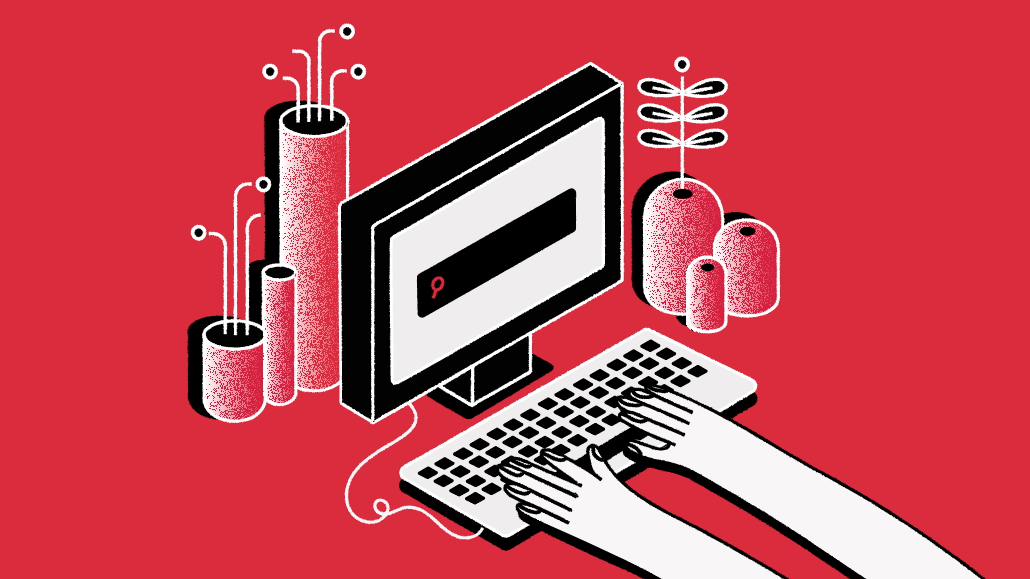Secure your place at the Digiday Media Buying Summit in Nashville, March 2-4
‘Exclusive is illusive’: U.K. publishers launch plan to mitigate loss of traffic when sources aren’t properly cited

In the absence of links to original sources, the significant impact on publishers’ traffic, and the associated revenues, are irrefutable. That’s the view of publishers in the U.K. who have come together via trade body the Association of Online Publishers (AOP) to back a standardized way to cite sources.
The protocol revolves around an email process whereby those publishers who have registered for it are able to contact other publishers who have not cited exclusive content they’ve produced so that it can be updated. While this could be done without the protocol, it would arguably be a disjointed process defined by each publisher’s own way of doing things. Different publishers will have different email addresses for who needs to be contacted in these instances, for example.
The AOP’s proposed new way of doing things tries to negate this from ever happening again. In theory, the publishers would all use emails that follow the same format when dealing with issues over fair attribution — e.g. attribution@thepublisher.co.uk, for example.
Here’s how the process would work in practice: if publisher X noticed that publisher Y quoted or referenced an exclusive article without linking back to it, then the former would email the latter via the specific attribution email to let them know it happened. From there, publisher Y would make a call on whether it needed to add the appropriate link. If it does, the update is made, with the hyperlink anchor text being the title of the cited publication (e.g. publisher X). All links to original content should be follow links, not no-follow so that search engines pay attention to the page and subsequently boost its ranking. No-follow links get no love.
“Every publisher wants its original reporting to get the visibility in search results, especially the top stories, that they deserve,” said Carly Steven, head of SEO at The Sun. “Unfortunately we don’t feel like that’s always the case. Despite Google’s best efforts to try and reward original content, there are inconsistencies in the way publishers have been linking to and identifying the original source of stories.”
As much as this is about giving credit where it’s due, there’s also a commercial incentive. Linking is key for SEO. Google uses links from prominent sites as a gauge for what it calls ‘authoritativeness’ — a key factor in determining ranking.
Sure, the success of a publisher’s SEO strategy isn’t entirely defined by how many times it is properly cited by other publications. Google ranks sites based on a myriad of factors including speed, responsiveness, and visual stability, for example. That said, the protocol aims to help Google’s algorithm understand who the original source of a story is.
“The initiative is eminently sensible and should be embraced by every quality news and content provider out there,” said Douglas McCabe, CEO of Enders Analysis. “The internet has demolished incentives for originating content. Exclusive is illusive — for as long as it takes someone to re-write and publish. Copyright is the real key, but no one seriously believes online norms can be reversed after more than 20 years.”
Think about it: the commercial impact may be less than hoped for by these publishers, but there are principles and standards at stake for them. Setting new standards is part of a larger narrative about reputable media outlets differentiating themselves from other content production, continued McCabe. Indeed, the value of trusted journalism to society has never been more clearly demonstrated than over the last 18 months, numerous publishers have said over this period. During that time, search engines and social media have blown further apart newspapers’ bundles of stories — even as those same platforms struggle with self-censorship.
“We as an industry have had a massive debate over this period around the growing importance of trust in content, not only because of the spread of misinformation but also because journalists should be more encouraged to recognize they have a responsibility through their articles to present alternative opinions so that more people feel empowered and informed to make their own judgments and opinions,” said Richard Reeves, managing director at the AOP.
So far the protocol is backed by those publishers that make up the AOP’s audience development steering group, as well as a commitment from other U.K. publishers including the The Sun, Global and Bauer.
With backing from its audience development steering group and commitment from several leading UK publishers already, AOP will now focus on driving more publishers and trade bodies to support the roll out of the protocol.
More in Media

From feeds to streets: How mega influencer Haley Baylee is diversifying beyond platform algorithms
Kalil is partnering with LinkNYC to take her social media content into the real world and the streets of NYC.

‘A brand trip’: How the creator economy showed up at this year’s Super Bowl
Super Bowl 2026 had more on-the-ground brand activations and creator participation than ever, showcasing how it’s become a massive IRL moment for the creator economy.

Media Briefing: Turning scraped content into paid assets — Amazon and Microsoft build AI marketplaces
Amazon plans an AI content marketplace to join Microsoft’s efforts and pay publishers — but it relies on AI com stop scraping for free.








